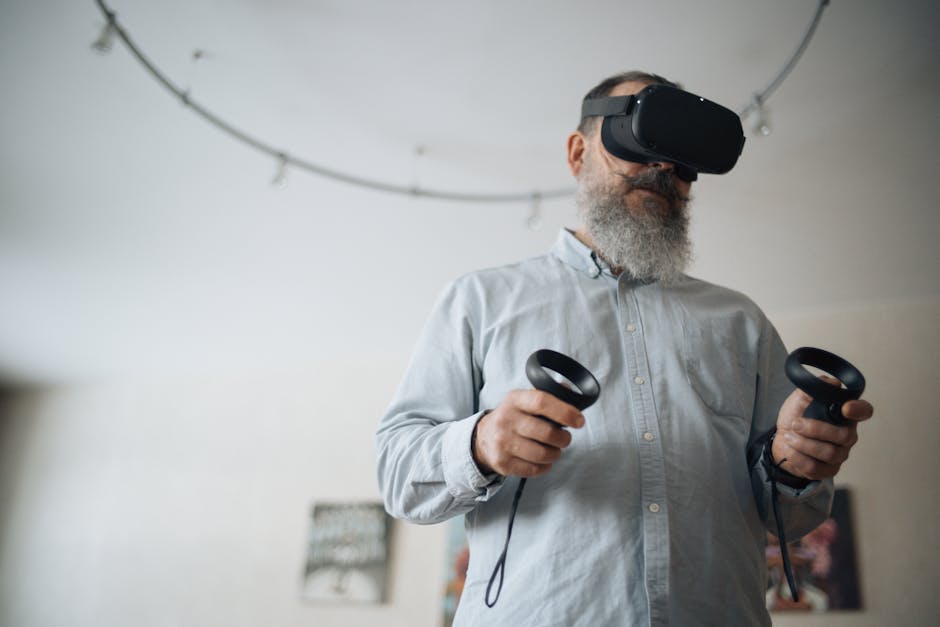Unlock the Therapeutic Power of Play: Games for Mental Wellness
In today's fast-paced world, where stress and anxiety often take center stage, the concept of play isn't just for children anymore. Imagine a space filled with laughter, friendly competition, and light-heartedness—this is where mental wellness thrives. The therapeutic effect of play extends to adults significantly, offering not only a break from daily stresses but also a means to foster deeper connections and enhance overall mental health. Discover how engaging in adult games can rejuvenate your mind and elevate your relationships in unexpected ways.
Why Play Matters for Mental Health
Consider a moment in your own life when you immersed yourself in something playful—perhaps a game night with friends or an impromptu dance-off in your living room. Such moments spark joy, release pent-up energy, and cultivate an environment of camaraderie. According to mental health experts, play is an essential aspect of emotional resilience and cognitive function. Dr. Stuart Brown, founder of the National Institute for Play, highlights that “the opposite of play is not work—it’s depression.” When we remove play from our lives, we risk diminishing our emotional health and social connections.
The Science Behind Play
Recent studies underline the mental health benefits of playful activities. A fascinating report by the American Psychological Association indicates that engaging in games can significantly reduce stress levels, enhance creativity, and encourage problem-solving skills. These benefits arise from play's ability to induce a state of flow—a mental condition where individuals fully immerse themselves in the activity, resulting in joy and fulfillment. Furthermore, games stimulate the release of neurotransmitters like dopamine and oxytocin, providing a natural high that fosters feelings of happiness and connection.
Types of Adult Games That Foster Connection
It’s easy to dismiss games as mere entertainment, but they can serve as remarkable tools for enhancing mental wellness. Here’s a closer look at several categories of adult games that can boost your mental health and foster meaningful connections.
Board Games: More Than Just Fun
Board games have made a notable comeback in recent years, serving as excellent social lubricants. Games like Codenames or Settlers of Catan promote teamwork and strategic thinking while enabling players to engage in meaningful conversations. As people gather around the board, the atmosphere transforms into a space of laughter, storytelling, and sometimes light-hearted rivalry. To dive deeper into this topic, check out this article on transforming your mood through engaging social activities.
The Emotional Benefits: - Nurtured Relationships: Playing together fosters collaboration and strengthens bonds. Adult game nights can become a platform for developing trust and understanding among friends or family members. - Diversion from Stress: Board games provide a respite from daily pressures, allowing players to momentarily escape into a world of fun and fantasy.
Video Games: The Online Connection
Video games create complex narratives and immersive experiences that can engage players mentally and emotionally. While often perceived as isolating, modern gaming encourages collaboration and teamwork. Online multiplayer games such as Fortnite or Among Us have created communities where friendships form over shared challenges, significantly contributing to social well-being.
Benefits You Didn't Expect: - Social Skills Development: Contrary to the stereotype, multiplayer games promote communication and negotiation skills. Many gamers develop friendships that extend beyond the screen. - Increased Motivation: The competitive aspect of video games can ignite passion and motivation for challenges in real life, contributing positively to personal growth.
Outdoor Games & Activities: Reconnect with Nature
Engaging in outdoor games, from frisbee to paintball, promotes not only physical fitness but also mental clarity. Studies have shown that physical activity contributes to improved cognitive function and emotional balance. Combine nature and play, and you get a transformative experience—think of participating in an adventure race or a casual game of soccer in the park.
Why Go Outdoors? - Mindfulness in Motion: Activities in nature encourage participants to be present, creating a meditative state that is incredibly beneficial for mental health. It's akin to the benefits derived from laughter therapy, which highlights the importance of finding joy in simplicity. - Community Spirit: Playing outdoor games fosters community ties. It brings together people from different backgrounds, encouraging inclusivity and teamwork.
The Role of Play in Resilience Building

Tapping into the healing qualities of play can cultivate mental resilience. When we face challenges—whether personal or professional—play teaches us to take risks, embrace failure, and find joy in the process. Here’s how:
Creating a Safe Space for Vulnerability

Engaging in games offers a platform where vulnerability is not only accepted but celebrated. This creates an environment conducive to sharing emotions and challenges. People often find solace in discussing life's hurdles during the lighter moments of play.
Fostering Creativity and Problem-Solving

Participating in games inspires out-of-the-box thinking. Whether solving a puzzle in an escape room or strategizing in a board game, the skills developed through playful activities translate to real-life situations, enhancing problem-solving abilities and fostering creative approaches to challenges.
Play as a Vehicle for Emotional Expression

Games provide an outlet for emotions. Whether we draw cards in Uno or negotiate trades in a board game, players are allowed to express feelings in a light-hearted way. This ability to communicate emotions during play leads to stronger emotional intelligence and understanding among participants.
How to Introduce Play Into Your Life

If you’re wondering how to integrate more play into your life for enhanced mental health, here are practical steps you can take:
Start Small: Game Nights

Begin with a monthly game night. Invite friends over for board games or multiplayer video games. The key is to create a welcoming atmosphere where everyone feels comfortable to participate and contribute.
Explore New Games Regularly

Diversity is crucial in play. Try new games and encourage friends to bring their favorites to diversify the experience. You can explore less known games or even create your own informal games that align with your group’s interests.
Play Outside Your Comfort Zone

Encourage yourself and your friends to venture into outdoor play. Perhaps a weekend soccer match or a group hiking adventure could be great ways to combine physical activity with play.
Embrace Solo Play

Not all games require a group. Engage in puzzles, strategy games, or even video games alone. These can offer you a moment to unwind and tap into your creative side. Remember, play can be as simple as doodling or journaling—activities recognized for their mental wellness benefits in articles discussing doodling's impact on mental health.
Next Steps: Making Play a Priority

Incorporating the therapeutic effects of play into your life does not have to be a chore. Instead, it can be an enjoyable aspect of your wellness journey. Here are some steps to ensure play remains a priority:
Designate Regular Play Time

Just as you schedule meetings and appointments, prioritize play in your calendar. Treat it as essential for well-being.
Share Your Love of Play
Encourage those around you to join in. Create a culture of play in your friend circle, family, or workplace. Perhaps you’ll inspire others to embrace the power of play for mental wellness.
Reflect on Your Experiences
After your playful outings, take a moment to reflect on how you felt before and after. Acknowledge the emotional shifts you notice and appreciate the release of tension and stress through playful experiences.
Keep Learning
Stay informed about new games and the mental health benefits associated with them. Read about game strategies as well as psychological insights linked with playfulness. Connecting with resources such as gaming forums or psychological articles can enhance your understanding and appreciation of play in adult life.
Final Thoughts
The therapeutic effect of play is more profound than many of us realize. By integrating games into our lives, we can significantly enhance our mental health and strengthen interpersonal connections. Play nourishes our spirits, helping us cultivate joy even amid life’s uncertainties. Embrace the power of play, laugh a little louder, and remember that every moment spent engaging joyfully is a step toward a healthier, more resilient you.









